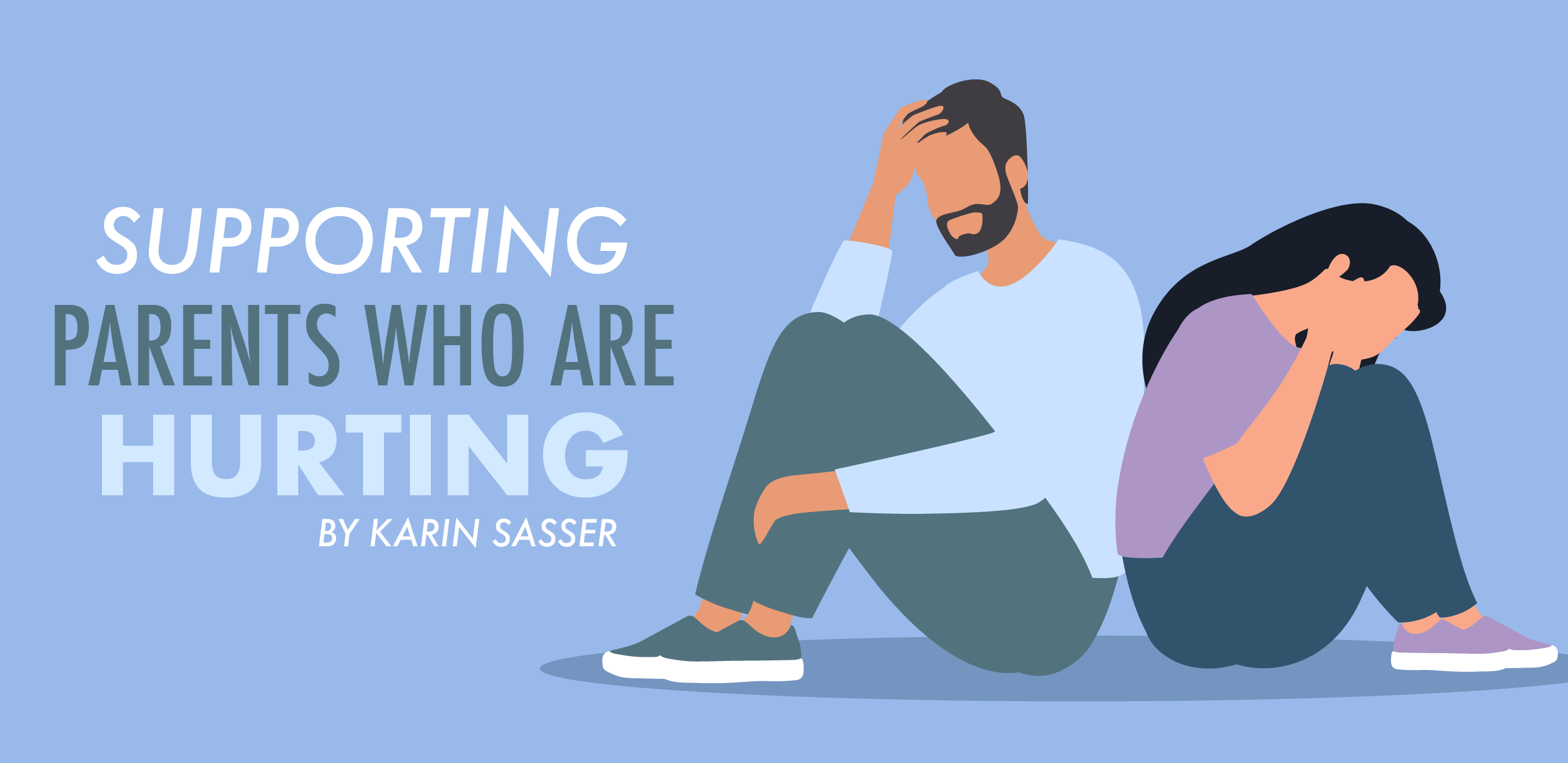Supporting Parents Who Are Hurting
by Karin Sasser
One of the biggest roles of a parent is caretaker. Parents care for the wants and needs of their kids. They care for their spouse. They care for the financial responsibilities of their family. They care for the running of the household. Many are also caring for their own aging parents. But what about when they find themselves in need of care themselves?
Parenting can be tough. Parents love their kids so much. They work so hard to disciple them, teach them, and prepare them for all the different things they may face in the world they live in. They try their hardest to be the best parent they can be. But we live in a broken world, and despite our best efforts, things are bound to go sideways at some point or another. This happens all too often in the tween and teen years. Kids can get sick or hurt. They can struggle with mental health issues. They can begin to make some very poor decisions. They can rebel against authority and their parent’s faith. It can be very difficult to parent through these situations as it not only can cause issues for teenagers but also causes pain and hurt for the parent.
As church leaders, we are called to help those who are in need and hurting. When we come across parents in our ministry who are hurting, we have to ask ourselves, “What do they need, and how can we help?”
Parents need to be seen and heard. They need a non-judgmental listening ear. We all know how much lighter we often feel when we are able to verbalize our burdens to a caring listener. Just knowing someone else is aware of what we are going through helps us feel less alone. While sometimes a hurting person going through a tough time wants practical advice, often what they want and need the most is an empathetic confidante, someone willing to take the time to simply listen. They need someone they can trust who can hold things in confidence. When possible, offer to be this person or point them to someone who can fulfill this role for them.
Parents need to know they are not alone. When times are tough and parents are hurting, it can feel very isolating. Sometimes, shame or embarrassment is attached, particularly if the source of the rough patch a parent is going through is bad behavior or poor decision-making on the part of their teen. This can produce feelings of self-doubt, guilt, and even failure. Parents need to be reassured that they are not alone, that this situation does not define them, and that God’s grace covers both them and their teens. A helpful thing you can do as a youth ministry leader when possible is to connect them with a willing parent in your ministry who has been through something similar and who would be willing to spend some time listening to and encouraging them.
Parents need community. One of the things that has helped me most on my parenting journey has been the community of other parents. It is reassuring to have people to lean on and inquire about when parenting during difficult circumstances. It’s helpful to know that, even if the struggle is different, I’m not the only one going through a hard time. It’s comforting to have someone encourage me through the process and extend hope that things can change and that God is at work. It’s a blessing to offer words of hope and encouragement to others in their trials and struggles. When possible, provide opportunities for parents to participate in community, whether providing times for them to meet while youth ministry events are occurring, offering classes about specific issues parents are facing, or connecting them with other parents who you know are also looking for community and encouraging them to create something of their own.
Parents need prayer. Whether it’s a moment with them in the hallway at church, in the privacy of your office, or in your own private time with God, prayer is the most powerful and easily accessible tool we can offer hurting parents.
Sometimes, parents need resources. As a youth worker, your primary focus is students. Most likely, you do not have time to run additional programs for parents on a regular basis. Instead, consider your role as one of a connector. Collect a list of resources – books, articles, podcasts, local agencies, and counseling services. As you are recruiting volunteers to work with your students, consider trying to find one who may not feel called to hang out with teens but may have time to research and compile resources on topics you know your parents are facing.
While your principal responsibility is not to parents, you most likely often find yourself in proximity to them and the struggles they are facing. Do all you can to connect them to people, community, and resources that can provide support and healing. Leverage your position to be the first step in helping parents find the help they need when they find themselves in challenging times.

